
It’s hard for any one human to comprehend the massive loss unleashed on the world by the earthquake in Turkey.
However, as a native of Antakya, the city whose small Jewish community was demolished along with everything else, I have a specific story to tell, one that other Jews especially must hear. The earthquake took my uncle, who was the head of the Jewish community in Antakya, and aunt from me.
Despite the deep sorrow and pain of losing them, we are all grateful that their bodies were found, brought to Istanbul and they were buried traditionally.
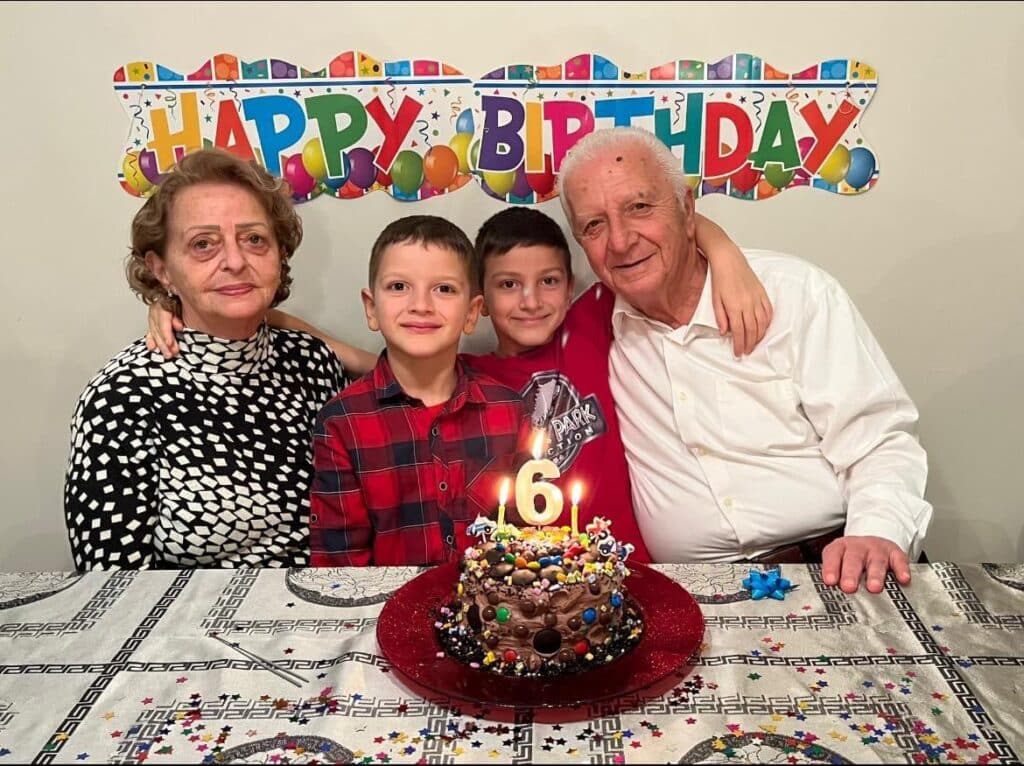
The earthquake destroyed Antakya, a city known as a peaceful home to adherents of three religions. I lost not just my aunt and uncle, but the apartment where I grew up, the streets I walked, the school I attended, our summer place, my synagogue. In other words, my past was now buried under the rubble. That is why I am sharing the story of my aunt and uncle and hometown.
What it was like to grow up in Antakya
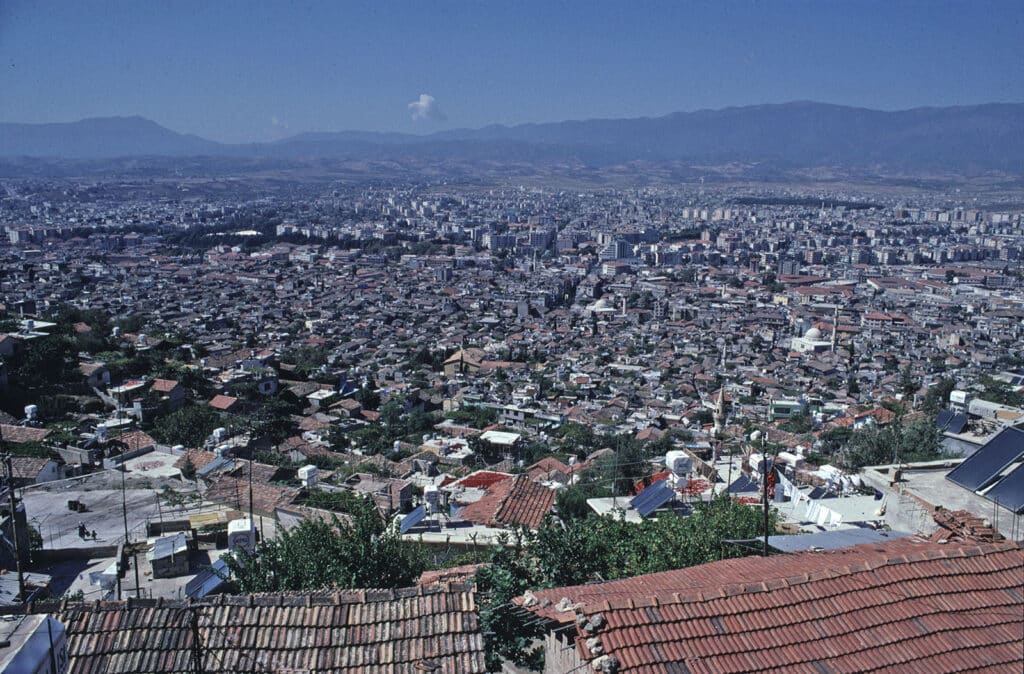
The home I grew up in was a three-story family building called “Cenudi Apartmanı.” We lived on the first floor, my grandmother and grandfather on the second, and my uncle Saul and his wife on the top floor. We had Christian and Muslim neighbors and everyone lived peacefully. It just came naturally.
The beauty of Antakya was directly connected to its Jewish community. It was called the “center of three civilizations,” meaning the Muslim, Christian and Jewish faiths. “Ezan, Çan, Hazzan” was the city’s motto, referring to the Muslim call to prayer, Christian church bells, and the Jewish hazzan (cantor). The phrase conveys the solidarity of these three religions.
The Muslim, Christian and Jewish cemetaries were adjacent to one another. The Habib-i Neccar Mosque, Antakya Turkish Catholic Church and Antakya Synagogue were located on the same street, and at certain times during the day, passersby would hear a mixture of prayers.
When I was 13, I moved to Istanbul, which is where I live today. I initially moved there because I got the chance to attend one of the best high schools in Turkey, Robert College. Since my parents were still living in Antakya, I went to boarding school.
The history of the Jewish community in Antakya
The Jewish community in Antakya — an ancient Turkish city that was known in antiquity and even mentioned in the Talmud as Antioch — was 2,500 years old.
In the 1980s, when I was growing up, there were around 50 Jewish families and 250 Jews living in the city. By 2014, the community had shrunk to just 14 people, including my aunt and uncle.
The Jews in Antakya were descendants of Syrian Jews, just like my grandmother who was from Aleppo. Unlike the Sephardic Jews who live in big cities like Istanbul and Izmir, the Jews in Antakya spoke Arabic, not Ladino. They also had their special cuisine, influenced by the Syrian kitchen.
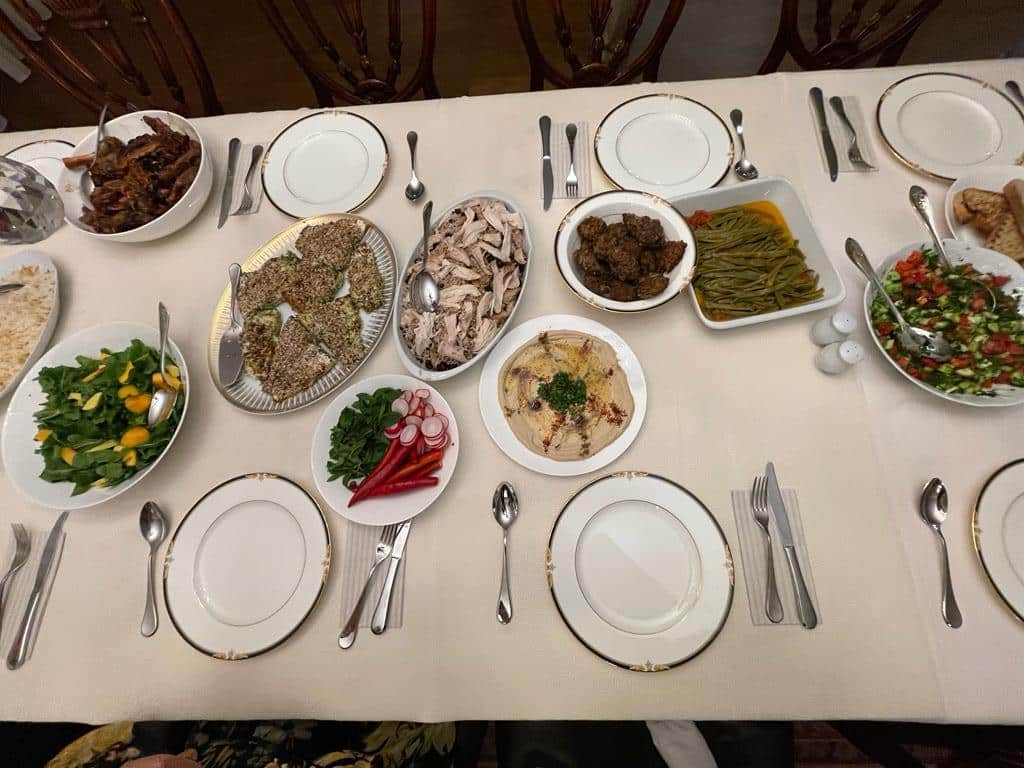
The Antakya Synagogue served the few remaining members of the once-thriving community. A team from the Turkish Jewish community saved its 500-year-old Torah scrolls from the rubble.
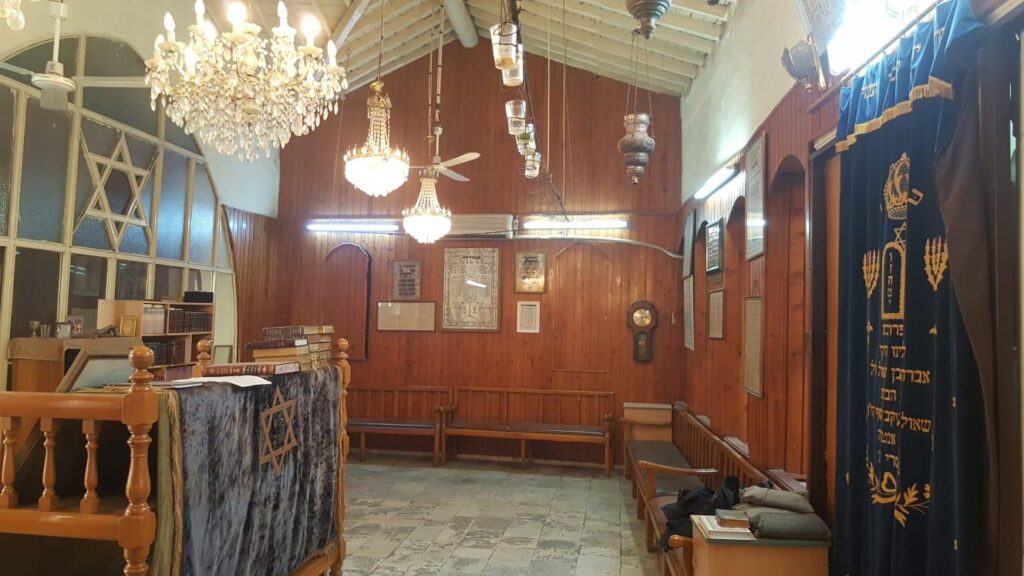
Saving ancient Torah scrolls from the earthquake damaged synagogue of Antakya – home for a Jewish community for 2500 years… #antakyadeprem pic.twitter.com/ZsHzVKdHWZ
— Rabbi Mendy Chitrik (@mchitrik) February 7, 2023
Why has the Jewish community of Antakya dwindled over the years? The reasons are similar to those of other diaspora Jews: assimilation, antisemitism, and intermarriage. Additionally, families left due to limited job opportunities in the small town.
Growing up, my father would tell me stories about the Jews who sold textile products from their stalls in the marketplace. Their competitors moved the day of marketplace from Thursday to Saturday so that the Jews who kept Shabbat wouldn’t be able to work on those days. That was another reason why some Jews left Antakya.
At the same time, there was also a special kind of solidarity between the Jewish, Christian, and Muslim tradesmen. For example, if one of the shops attracted the first customer that day, when the second customer came, he would say, “Go to my neighbor, he has beautiful stuff.”
My uncle and aunt, Saul and Tuna Cenudioglo
My uncle, Saul Cenudioglu, was a visionary leader committed to the Jewish community. He lived in Antakya, where his family operated a textile business, most of his life.
He did everything in his capacity to help the small Jewish community of Antakya thrive and connect with the rest of the communities in Turkey and the world. To ensure there was a minyan (a group of 10 Jews required for prayer services) every week, he would invite Jews from Istanbul to come to the city.
He also made the Jewish community in Antakya visible and worked closely with the Jews of Istanbul to support those back home. He built relationships with leaders of other faiths in Turkey as well. His commitment and loyalty reflected the Talmudic phrase “Kol Yisrael arevim zeh ba-zeh,” or “All Jews are responsible for one another.”
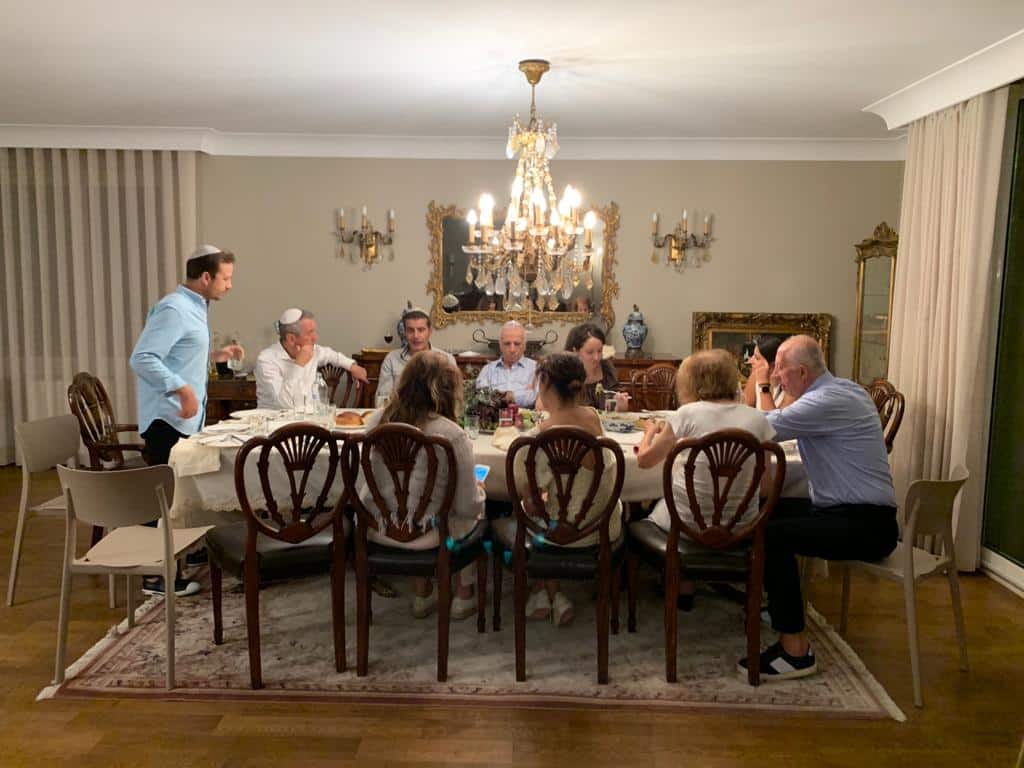
My uncle is the reason the Jewish community of Antakya is now well-known, despite the decrease in its numbers over the years.
My uncle’s wife, Tuna, was from İskenderun, another city close to Antakya. She met my uncle when she was 18 and my uncle was 26. They had a happy marriage and three children. Two of my cousins made aliyah and the other lives in Istanbul with his wife and two sons.
Saul’s wife was like a sister to my mother; she was always very supportive and loving toward everyone in the family. Growing up, I spent a lot of time at their house for Passover seders, Rosh Hashanah dinners and Shabbat meals.
As a couple my aunt and uncle always supported each other, hand in hand. Two weeks ago, they walked together toward eternity. I am grieving, yet I promise to do everything in my capacity to honor their memory and I hope their souls are bound in the bundle of life.
Originally Published Feb 21, 2023 01:50PM EST


